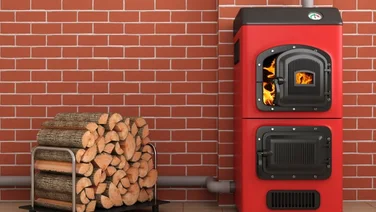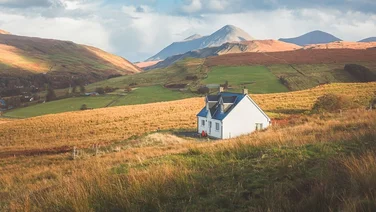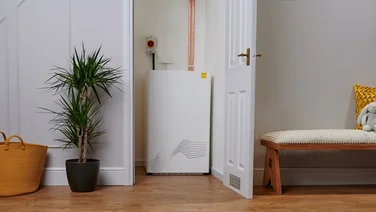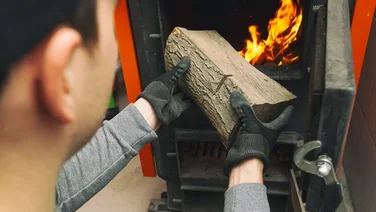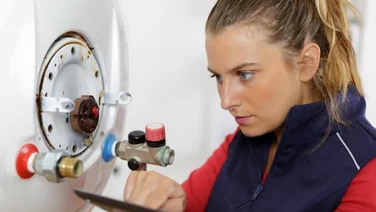We receive a small fee from trusted installers when you request a quote through our site. This helps us keep our content independent, well-researched and up to date – Learn more
✔ Flats usually need a 20-24kW boiler
✔ Three-bedroom houses typically have a 30-35kW model
✔ Fill in the form above for a free boiler quote from local specialists
Researching the cost of a new boiler can be a tricky process.
You want the best boiler possible, but you don’t want to overpay by getting a model that’s too big. A 60kW machine isn’t necessary unless you’re heating Downton Abbey.
But you also don’t want to buy a machine that fails to supply your home with enough heat or hot water. No-one wants to be left in the cold, especially when British winters last so long.
A boiler’s size refers to its output – the number of kilowatts per hour (kW) it uses to heat your home. So whether you have a flat or a five-bedroom manor, you need to pick the right number to fill your home with warmth.
If you choose poorly, your boiler can break down before its time, cost more than it needs to, provide insufficient heat, and/or take up precious extra space in your home.
If you’re ready to take the plunge, fill in this form to find out the best boiler deal for you.

What size boiler do I need?
It depends on the number of bedrooms and radiators you have to heat, but in general: the bigger your home, the bigger the boiler.
If you have a flat, you’ll want a machine with a 20kW to 24kW output – or, if your flat is particularly small, a 15 to 18kW boiler will do.
If you have a two-bedroom house, look at boilers with outputs between 24kW and 30kW.
For a three-bedroom house, we recommend considering 30kW to 35kW boilers.
And if your house has four or more bedrooms, you’ll be looking at a giant 40kW boiler, so your heat and hot water never runs out on you.
Read our guide on what a new boiler might cost you if you’re thinking about purchasing a new boiler.
|
Type of home |
Size of boiler (kW) |
|
Flat |
20-24 |
|
Two-bedroom house |
25-30 |
|
Three-bedroom house |
30-35 |
|
Four-bedroom house or bigger |
40 |
If you’re looking at the box which applies to you, and wondering how much that’ll cost you, you’re in luck.
We’ve made a boiler cost calculator to help you answer this difficult question – and here it is, in all its glory.
For a detailed guide on the costs involved, check out our piece on how much a new boiler might cost you.
Now check out this handy table, which will let you know how many extra radiators we suggest you invest in before replacing your boiler.
|
Home type |
1-4 radiators |
5-9 radiators |
10-14 radiators |
15-19 radiators |
20+ radiators |
|
Flat |
8kW |
12kW |
24kW |
28kW |
35kW |
|
2 bedroom house |
10kW |
14kW |
26kW |
28kW |
35kW |
|
3 bedroom house |
11-14 radiators |
6-10 radiators |
1-5 radiators |
30kW |
35kW |
|
4 bedroom house |
16-19 radiators |
11-15 radiators |
6-10 radiators |
1-5 radiators |
40kW |
How can I tell what size I need?
As shown above, there are two main factors. So before you buy your new boiler, consider how many radiators are in your home, and what type of home you live in.
Make sure to also think about your current boiler’s performance. How does its output suit you? Are you warm enough, or could you do with a higher output?
The calculator and table above and the advice below should be treated as estimations, to be factored into how warm or cold your home feels.
How many radiators do you have?
With that mind, let’s have a look at how the number of radiators in your home impacts the size of the boiler you’ll need.
|
Number of radiators |
Boiler size needed (kW) |
|
1-4 |
8-10 |
|
5-9 |
12-22 |
|
10-14 |
24-26 |
|
15-19 |
28-35 |
|
20+ |
40 |
Does a higher kW boiler cost more to run?
No, it doesn’t.
Bear with us here. It’s true that a 36kW boiler will cost more to run than a 24kW model – after all, you pay for each kW you use. A 36kW machine will use 12kW more per hour than a 24kW one, so you’ll pay 50% more.
But your home’s size isn’t negotiable.
If you have a house with four bedrooms, you may well need a 36kW boiler. A 24kW boiler just wouldn’t do.
You’d need to run a 24kW for 50% longer for it to have the same impact as its 36kW counterpart – meaning you’d pay exactly the same, but would have to wait longer for your home to heat up.
In the long run, you’ll save money by getting a bigger boiler, as long as you have the big home to match it.
This is because you won’t have to use it as much, reducing wear and tear and prolonging the machine’s lifespan.
Boiler breakdowns are disastrous, so help avoid them by choosing the right boiler size for you.
Is a bigger boiler more expensive to buy?
Yes, it typically costs more initially.
The following table of average boiler prices shows that you’ll spend hundreds more on a bigger boiler.
But as we’ve outlined above, getting a model with a higher kW output means cutting back on costs in the long term – and not having to wait for your heating or hot water.
|
Kilowatts |
Price |
|
24 |
£4,600 |
|
30 |
£4,850 |
|
35 |
£5,150 |
Summary
Now you know what size of boiler you need, and why getting a bigger boiler is the only good choice, if that’s what your home requires.
All you need to do is work out which type you want – whether it’s a gas combi, system, conventional, oil, electric, or biomass – and which of the latest models is the best boiler for your home.
If you want to receive a free quote from trusted experts in the field, just fill in this form.

